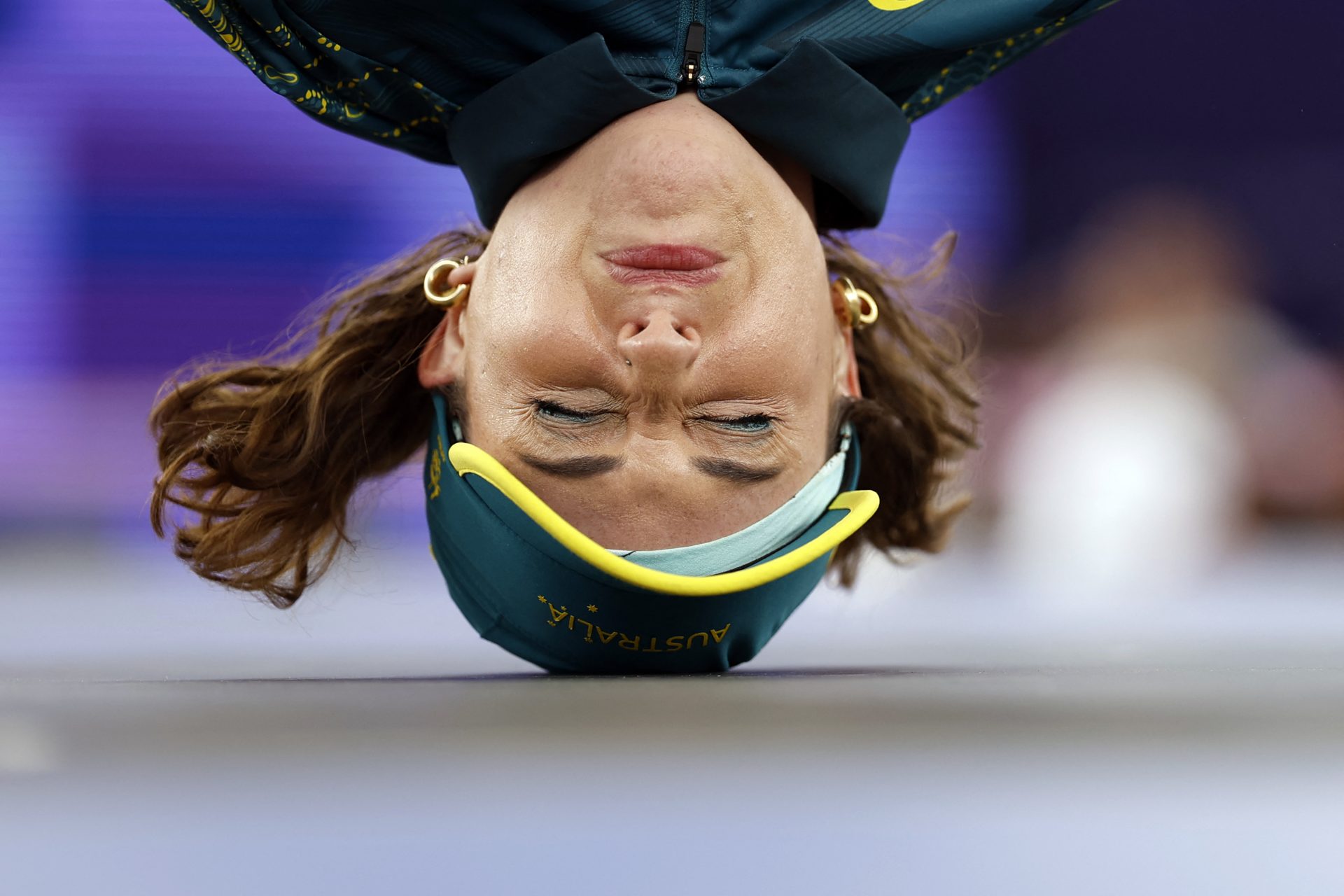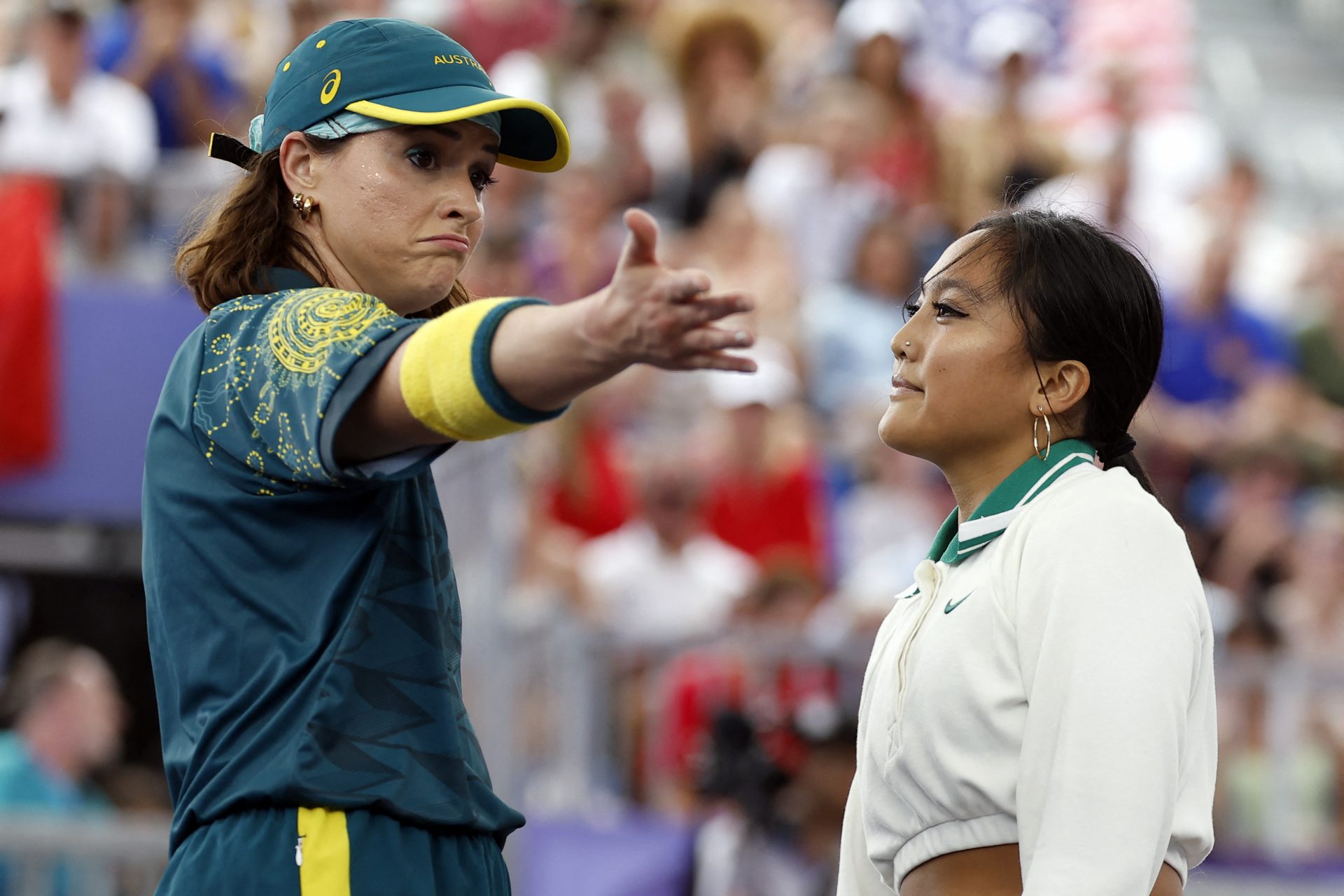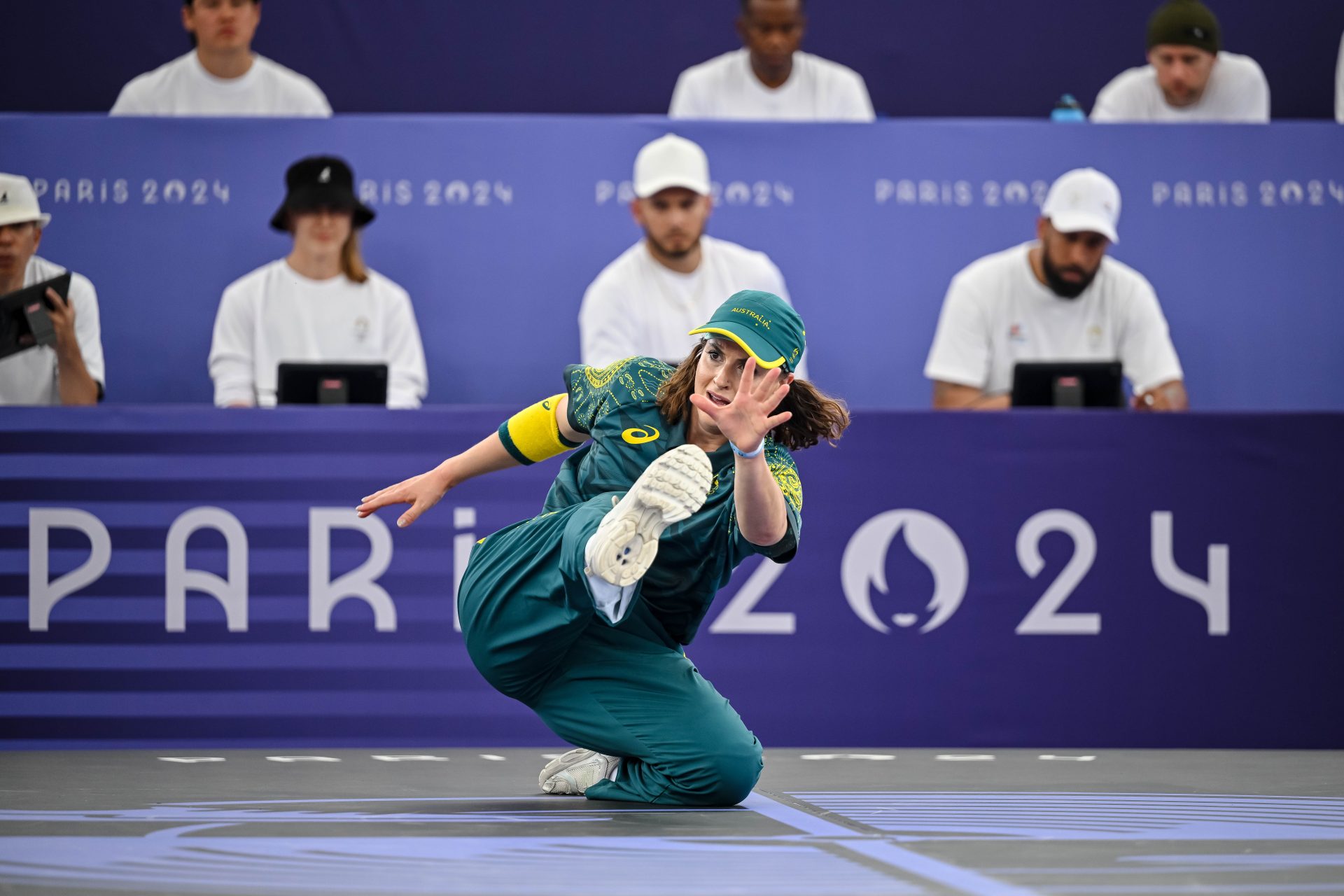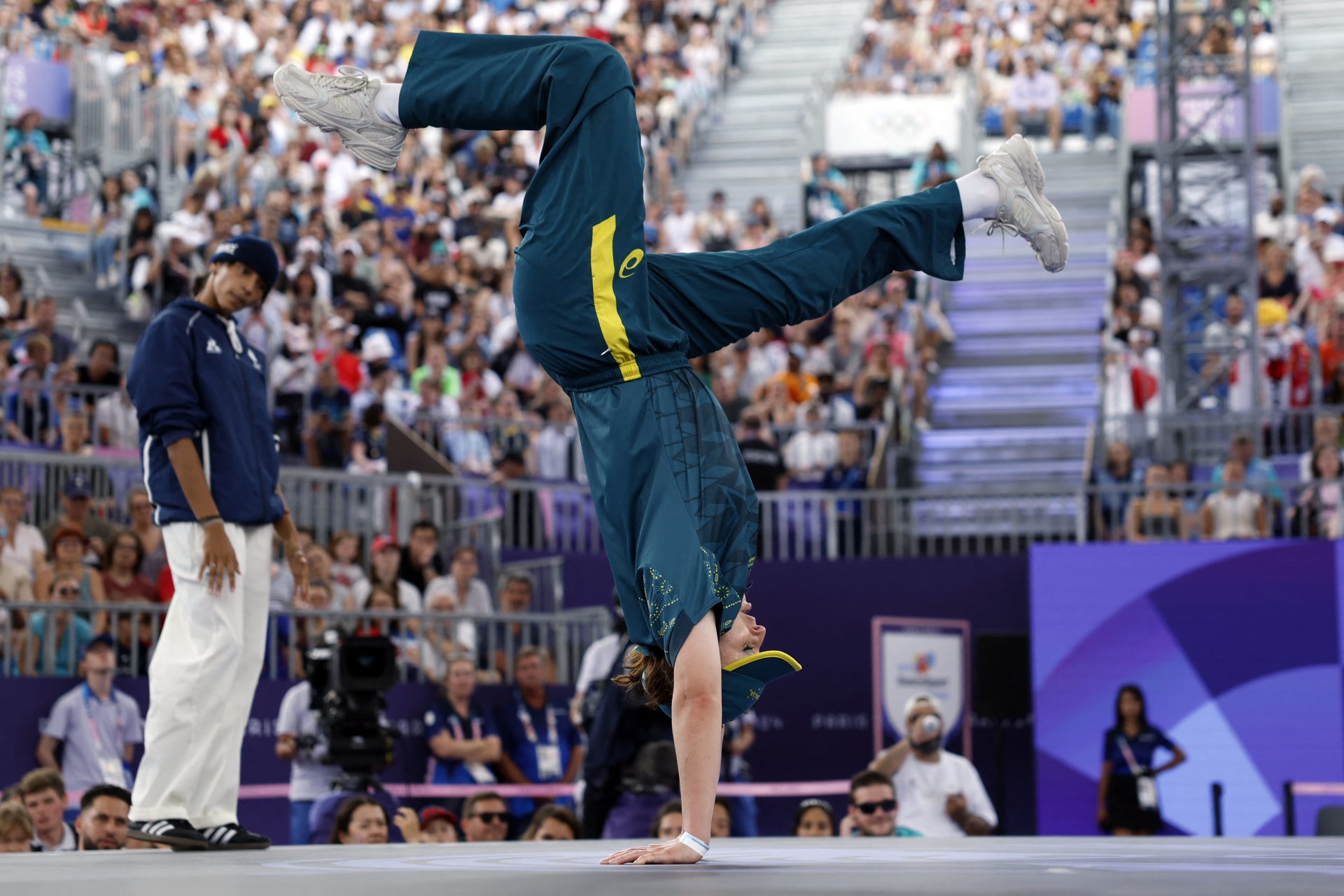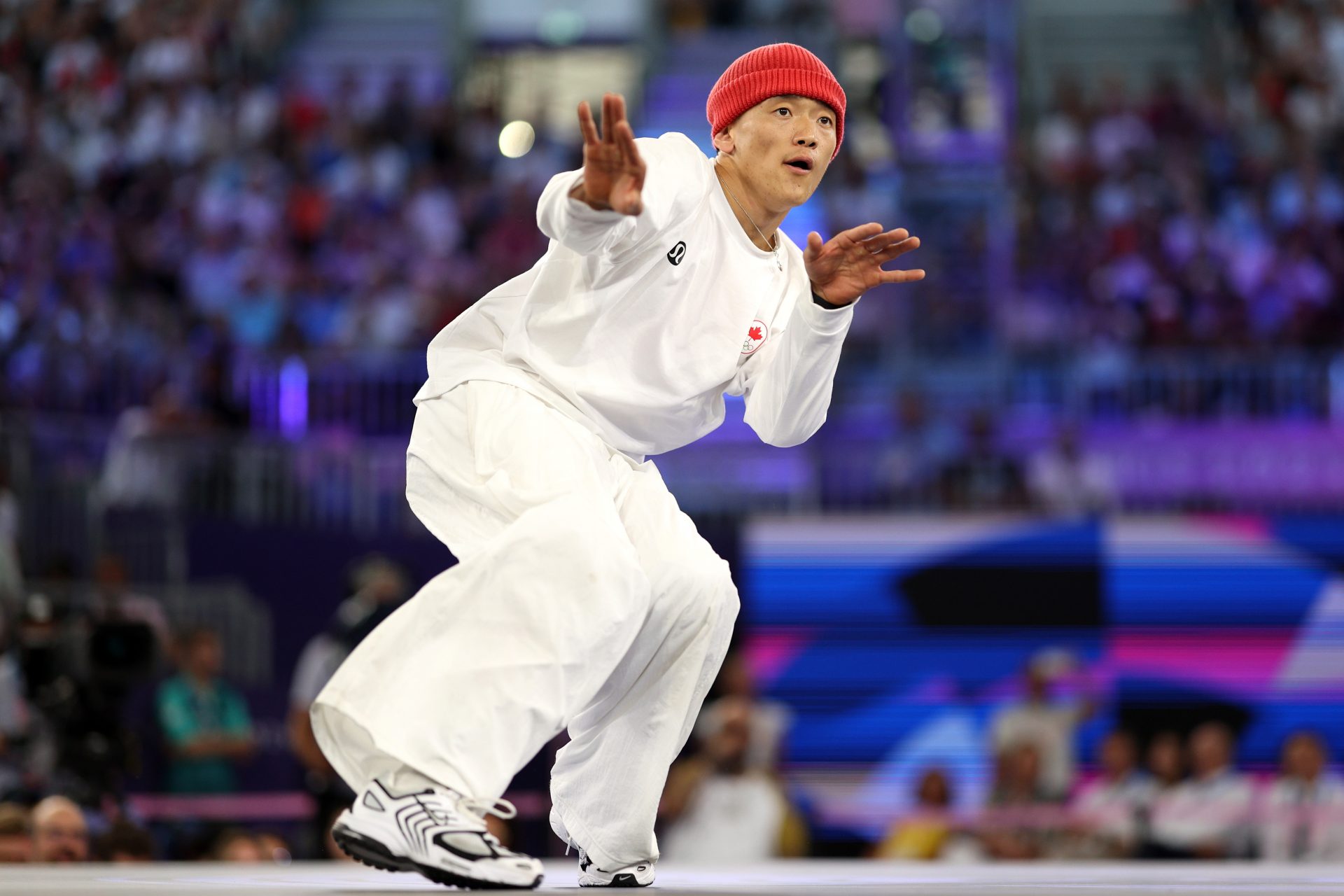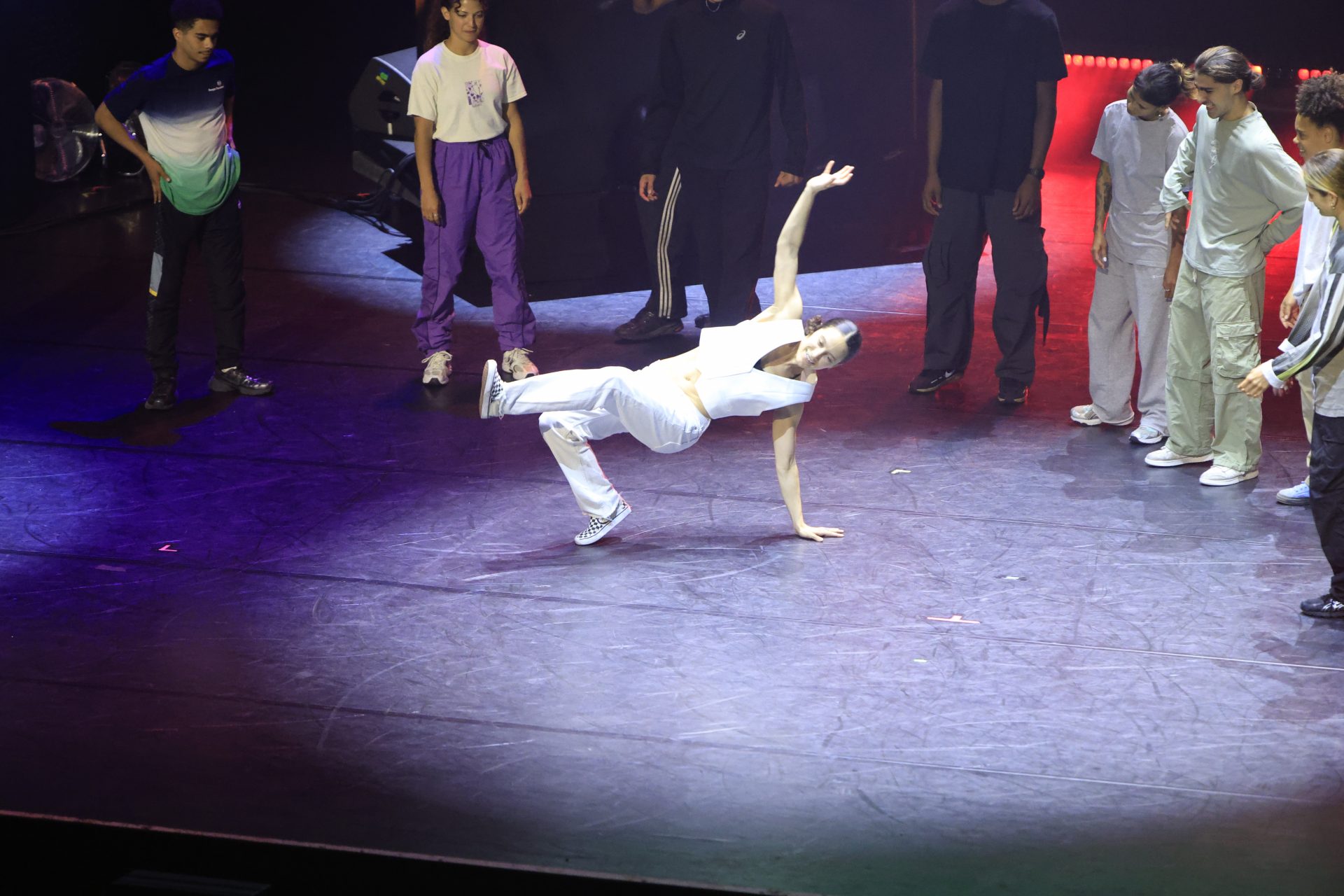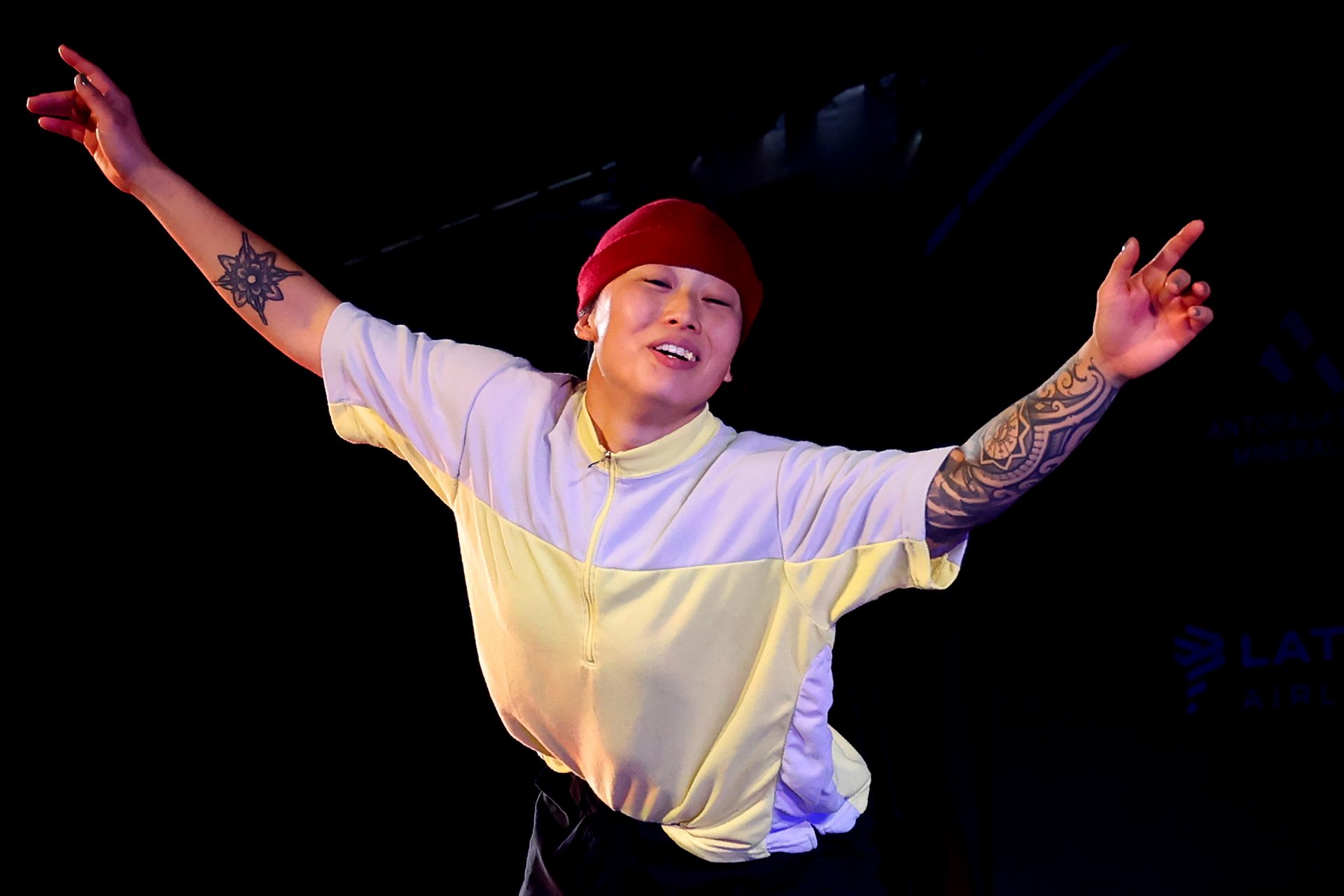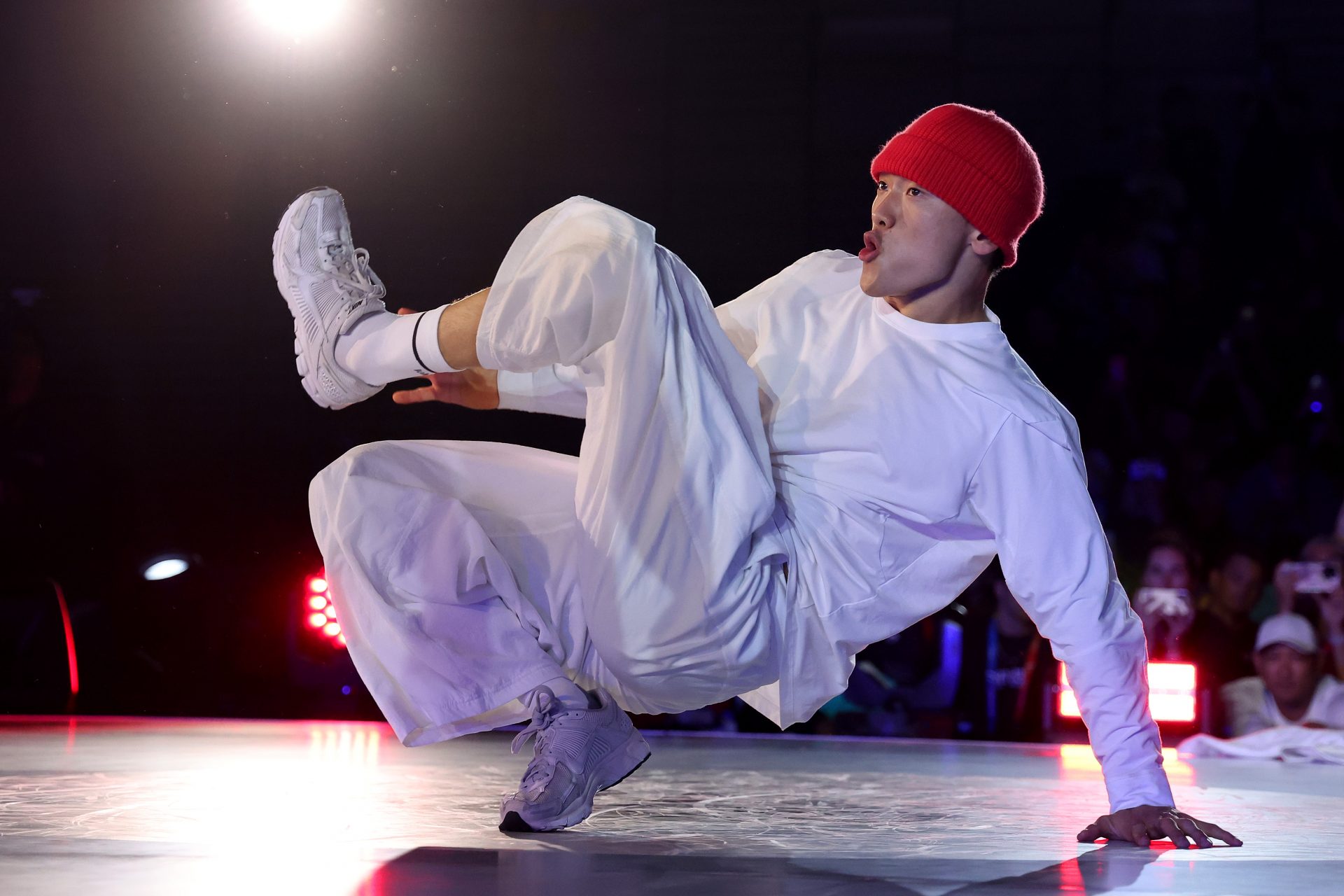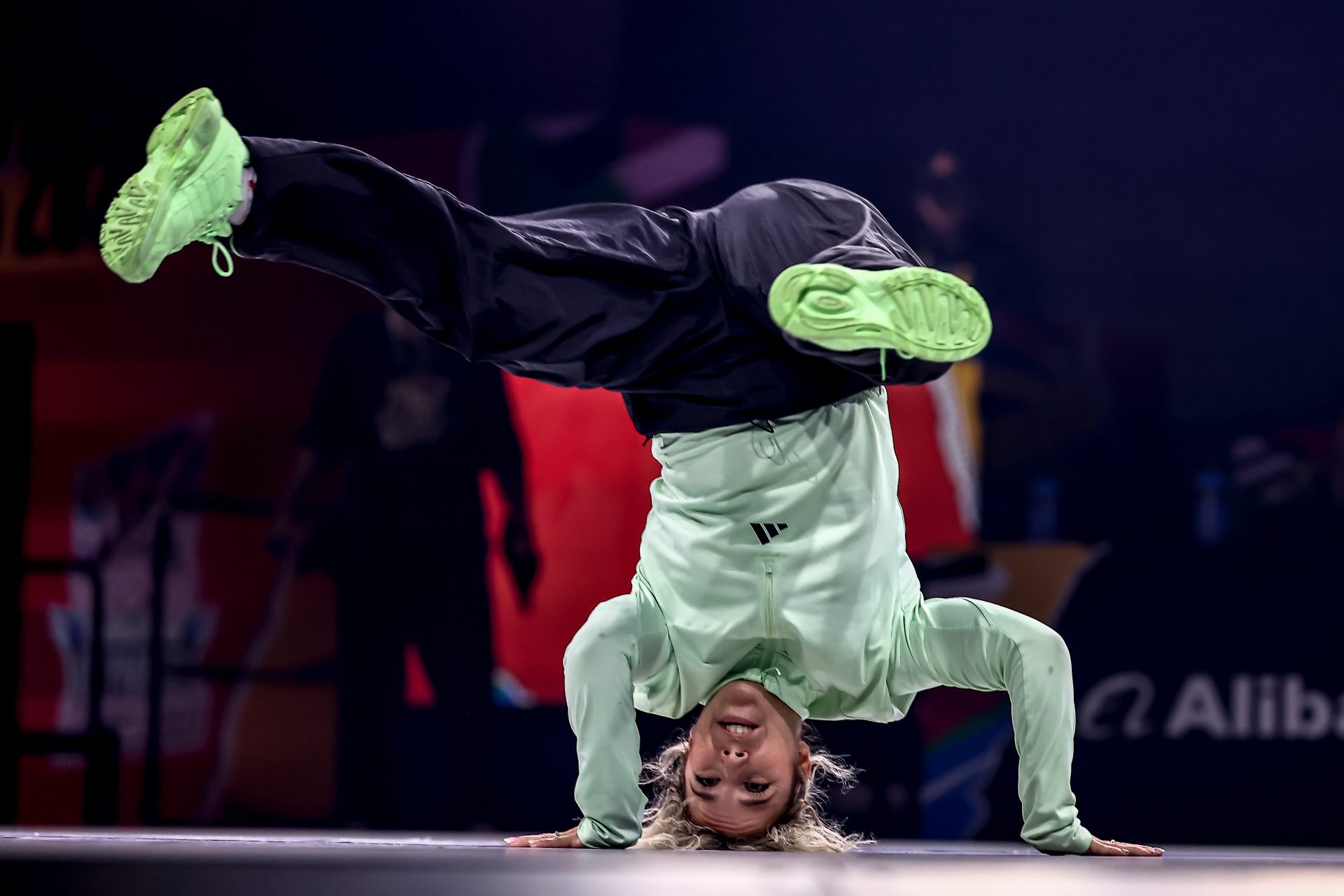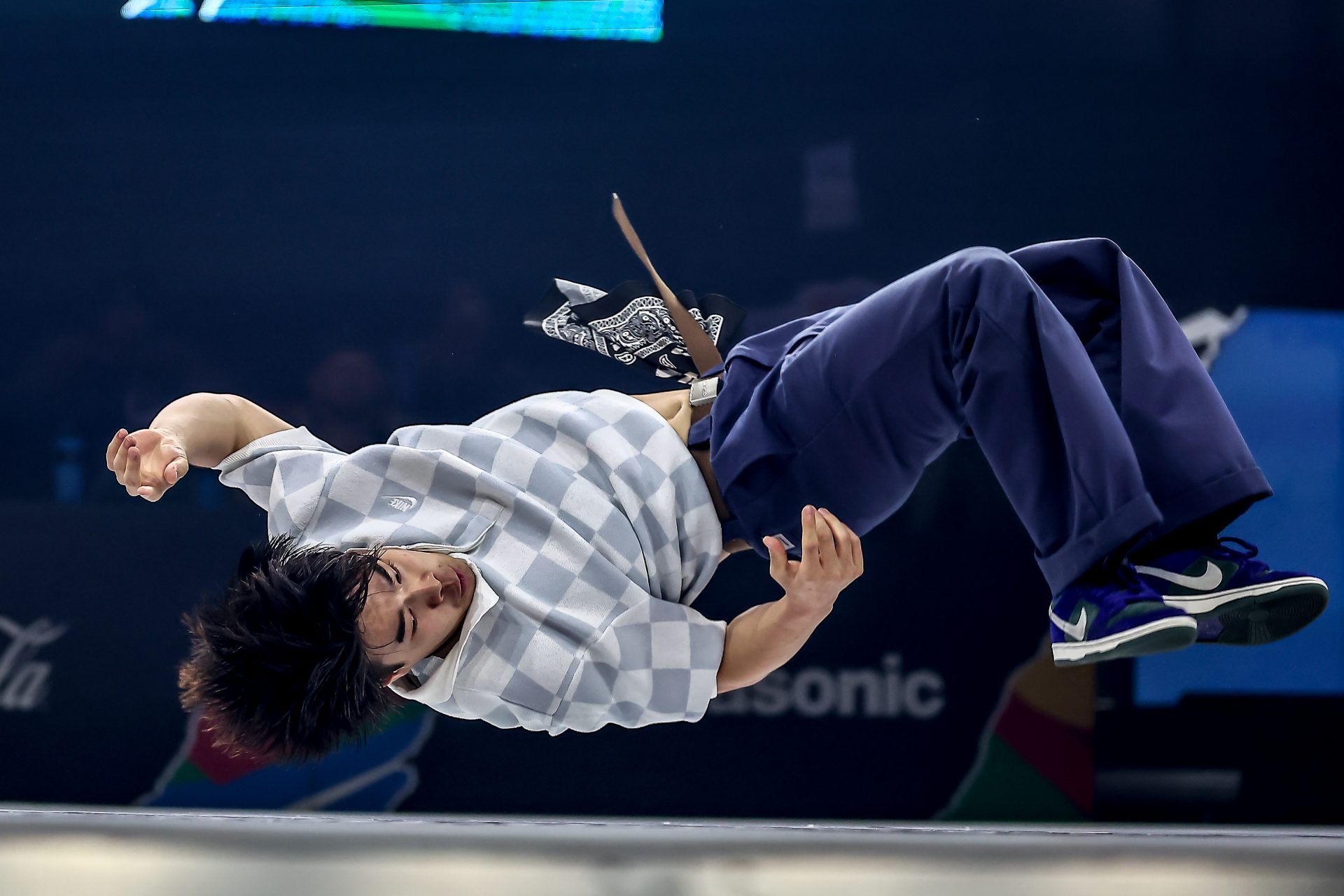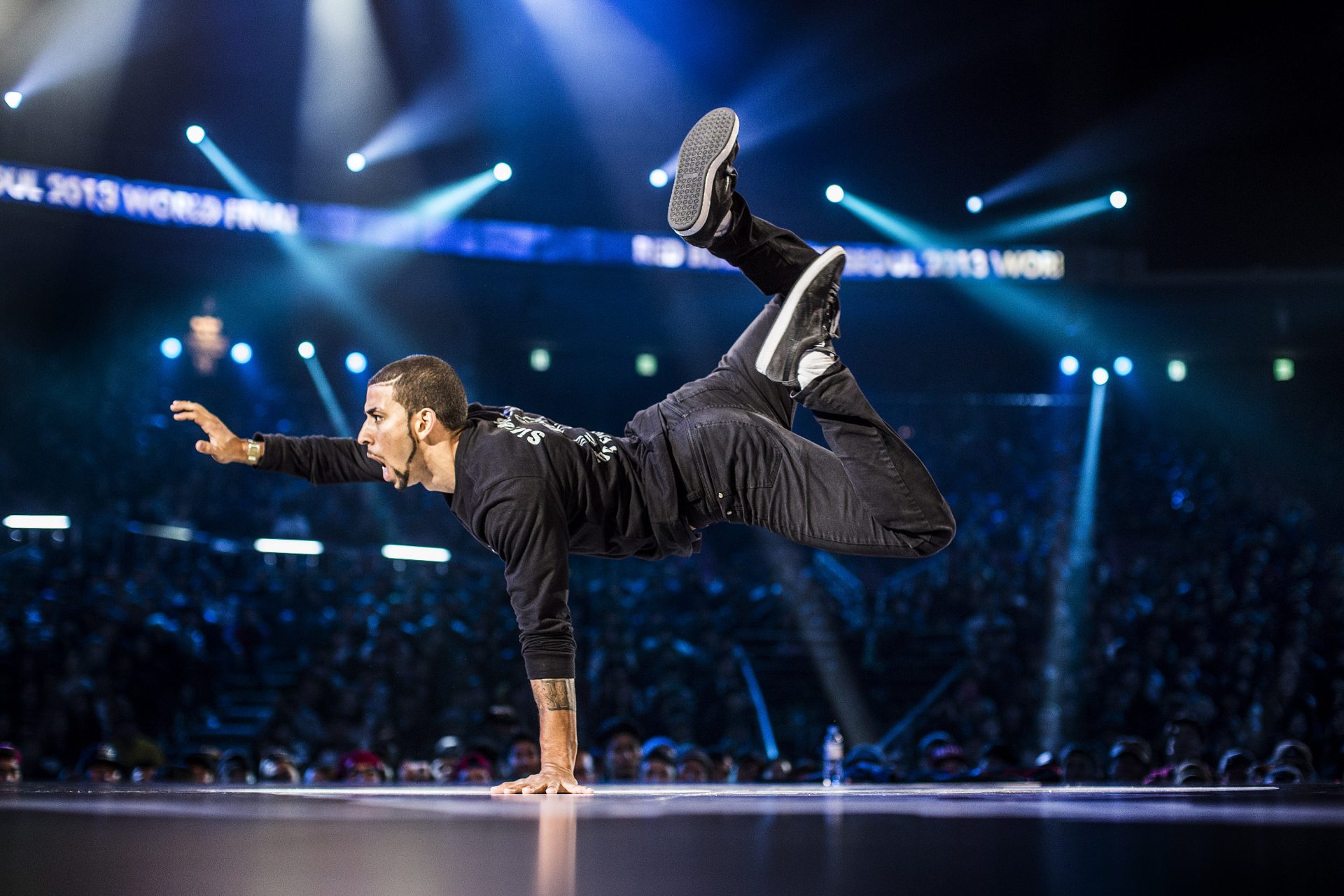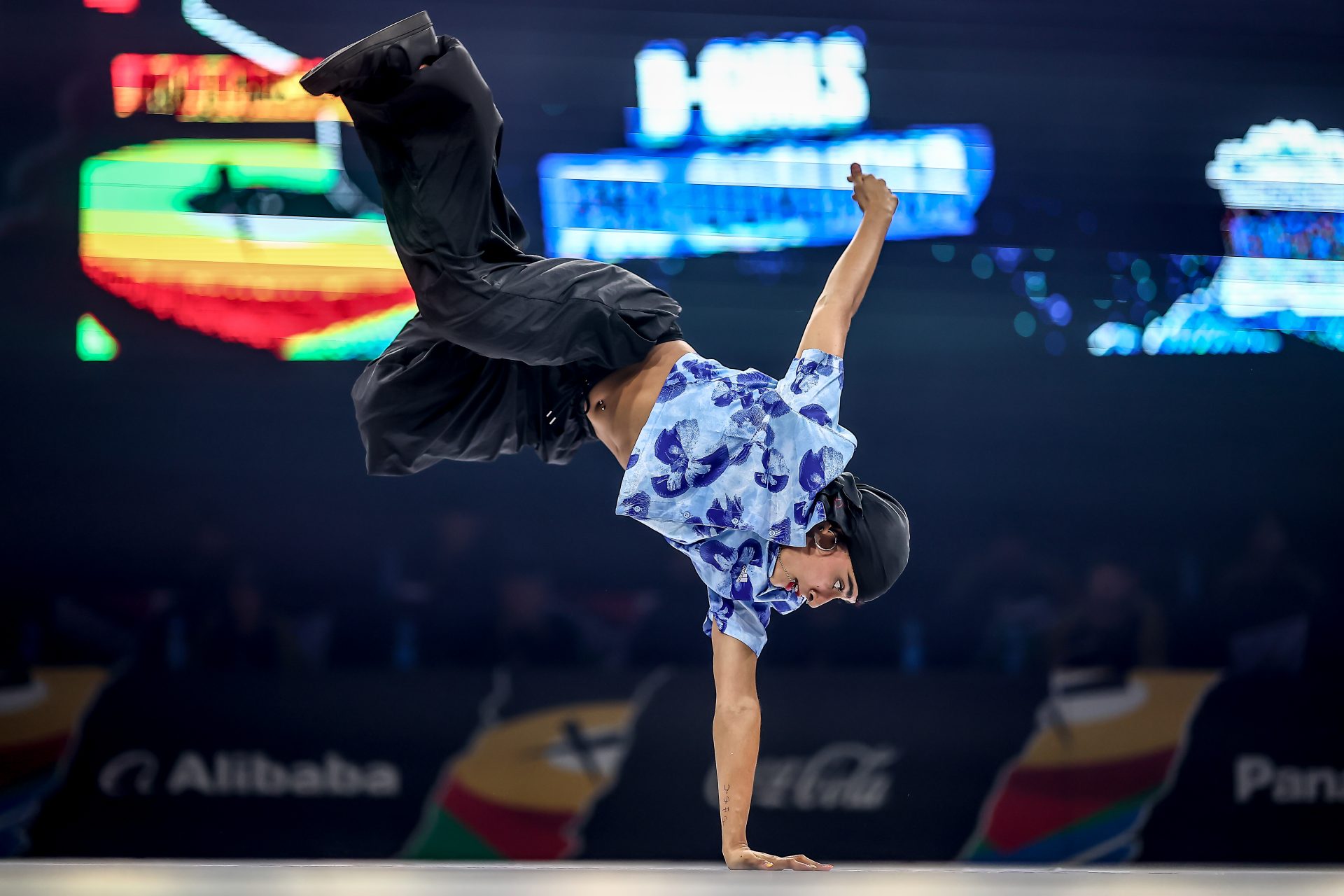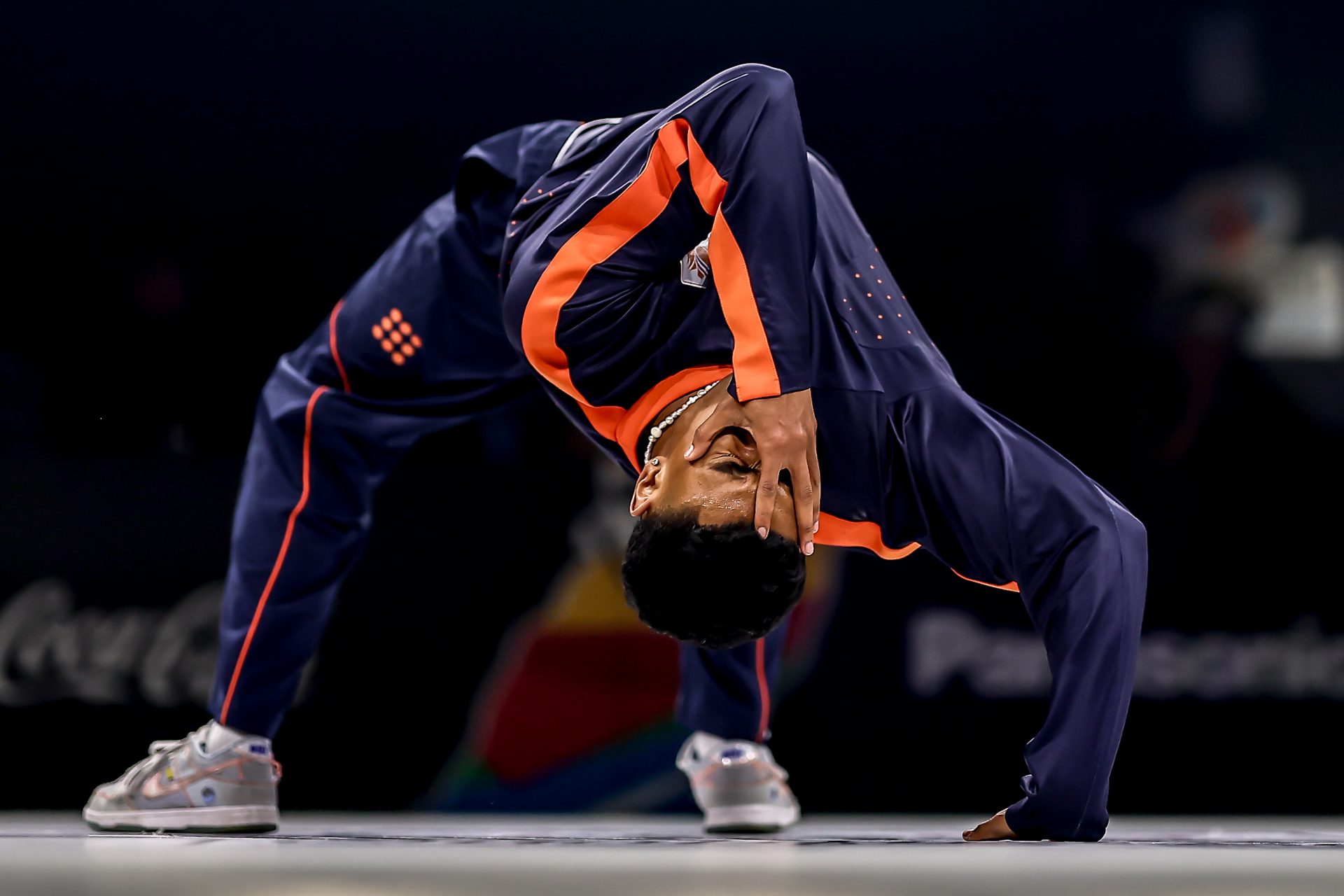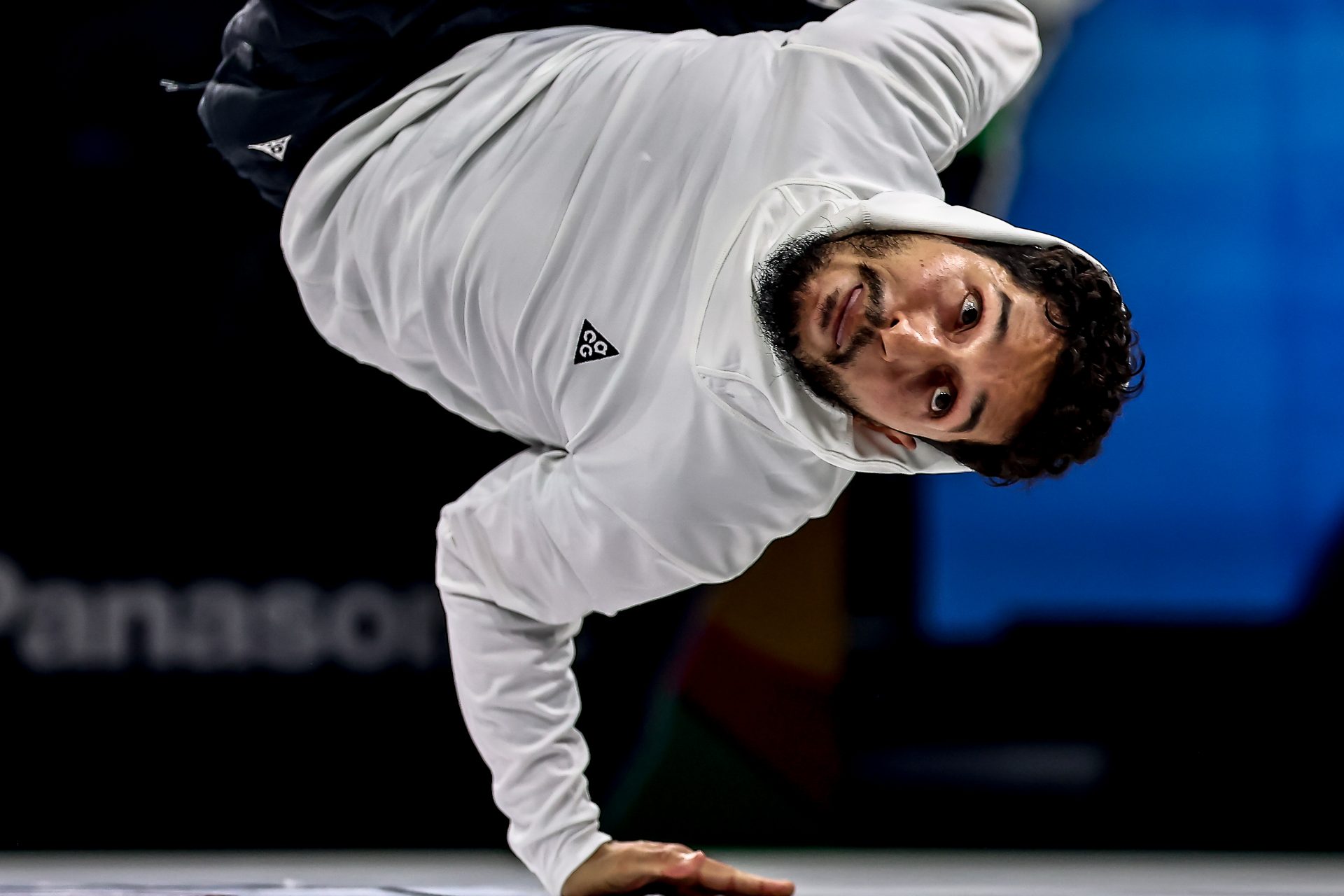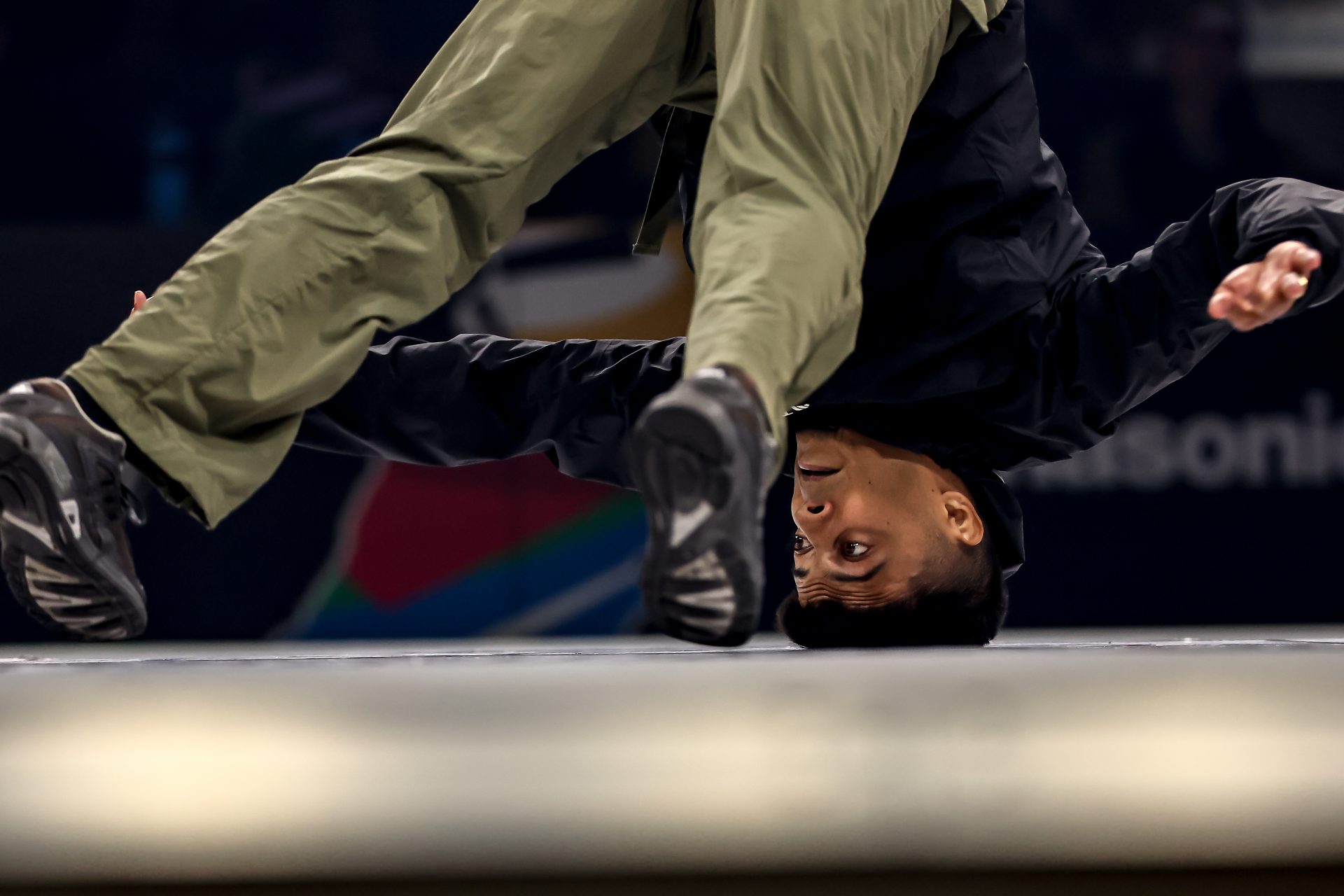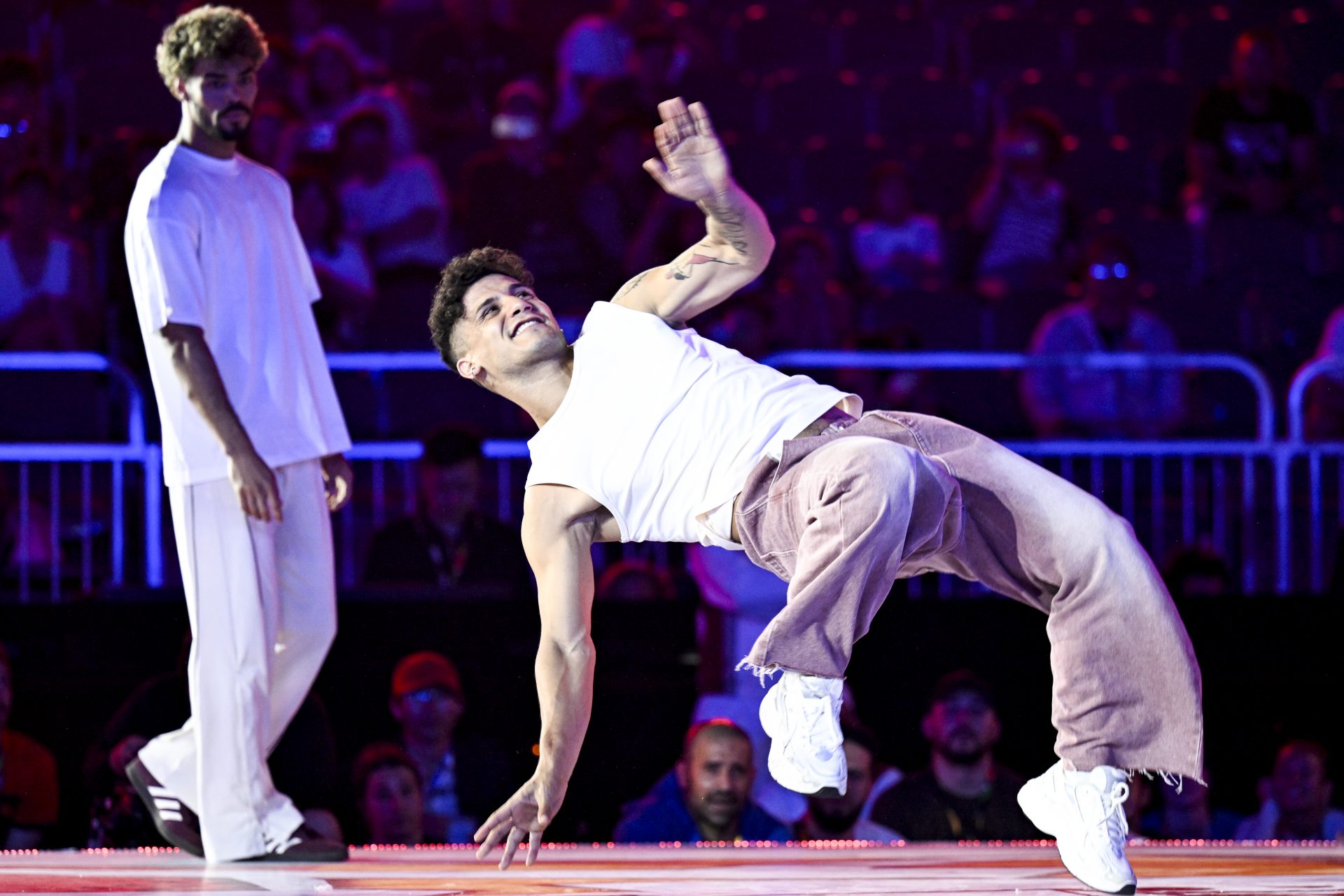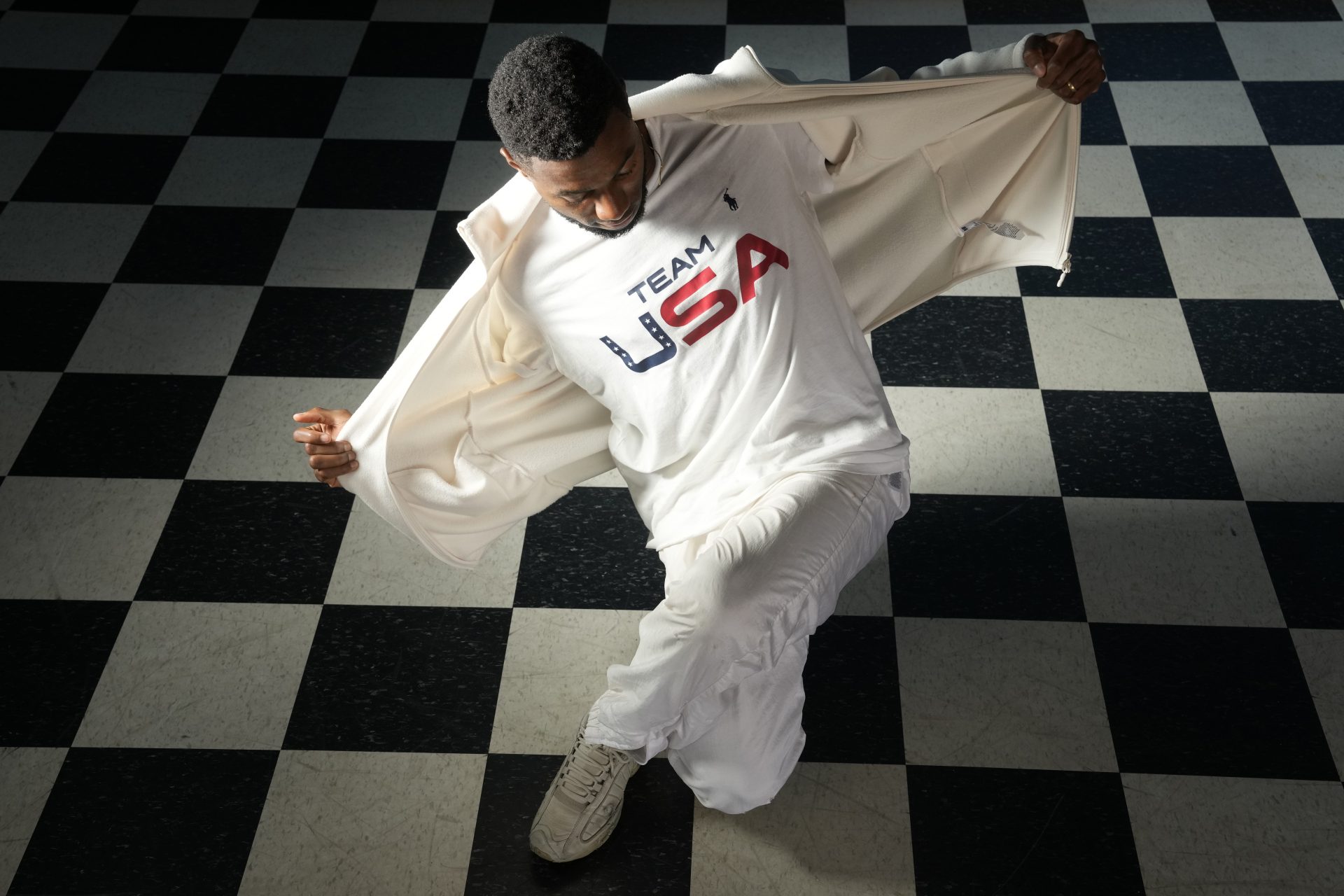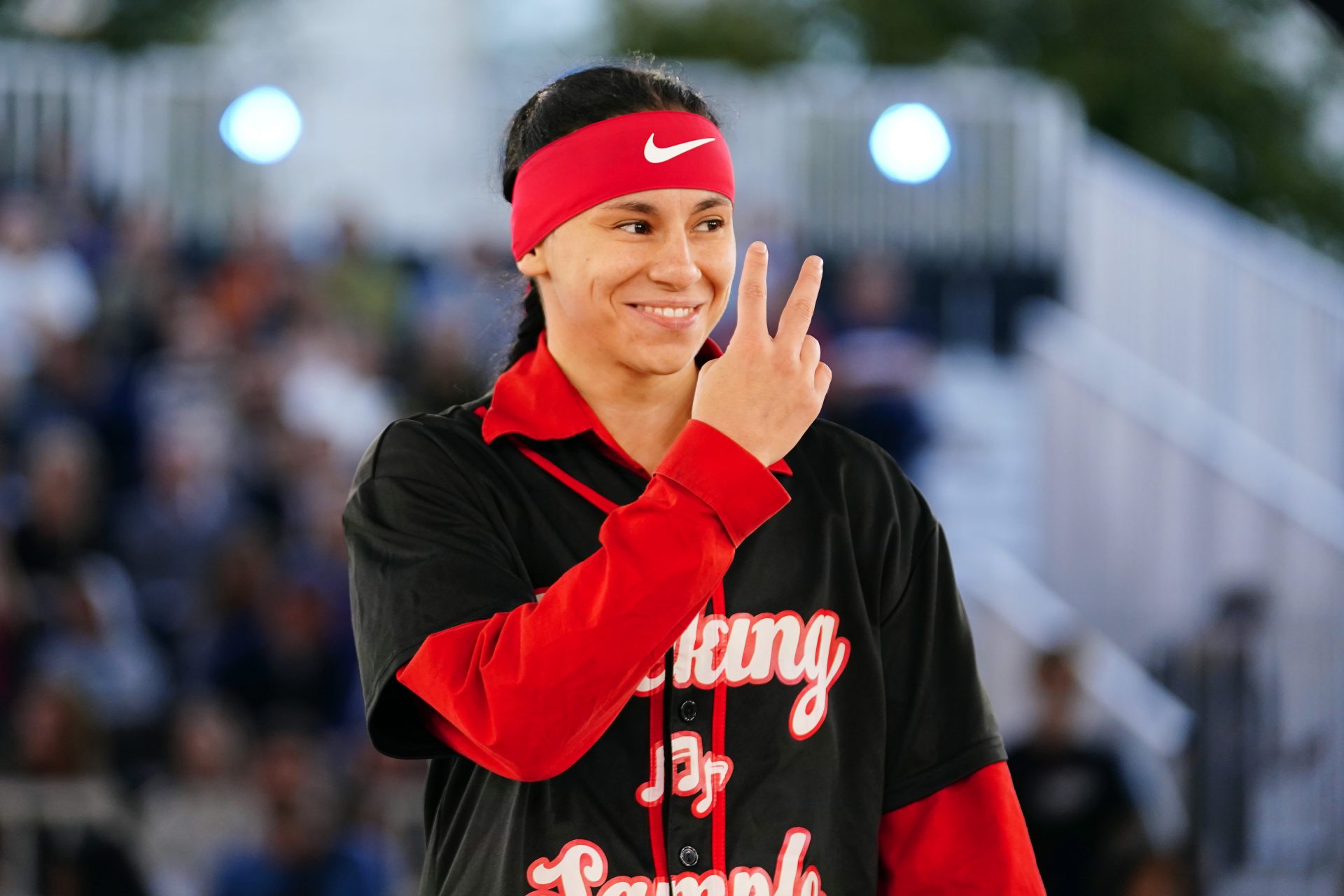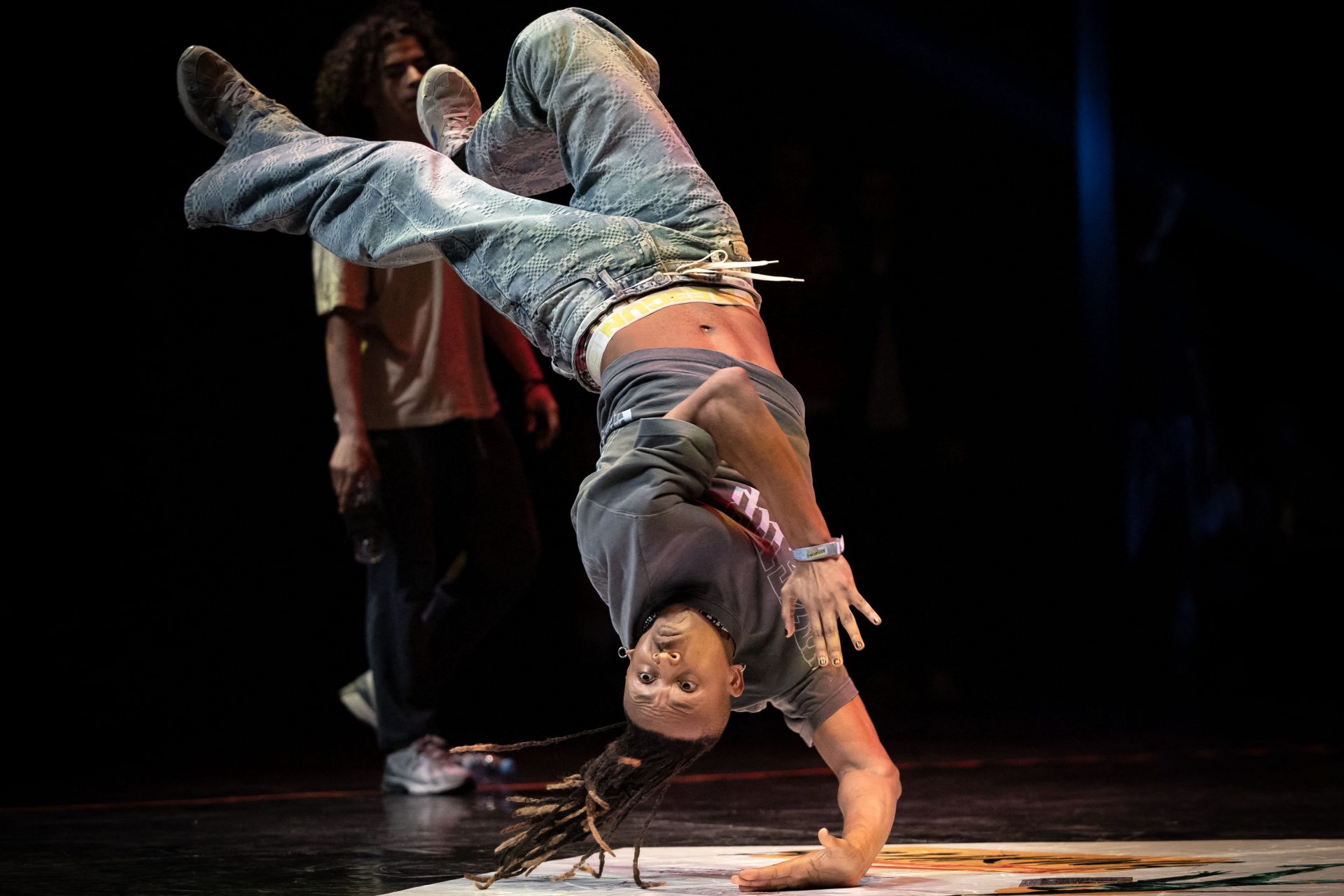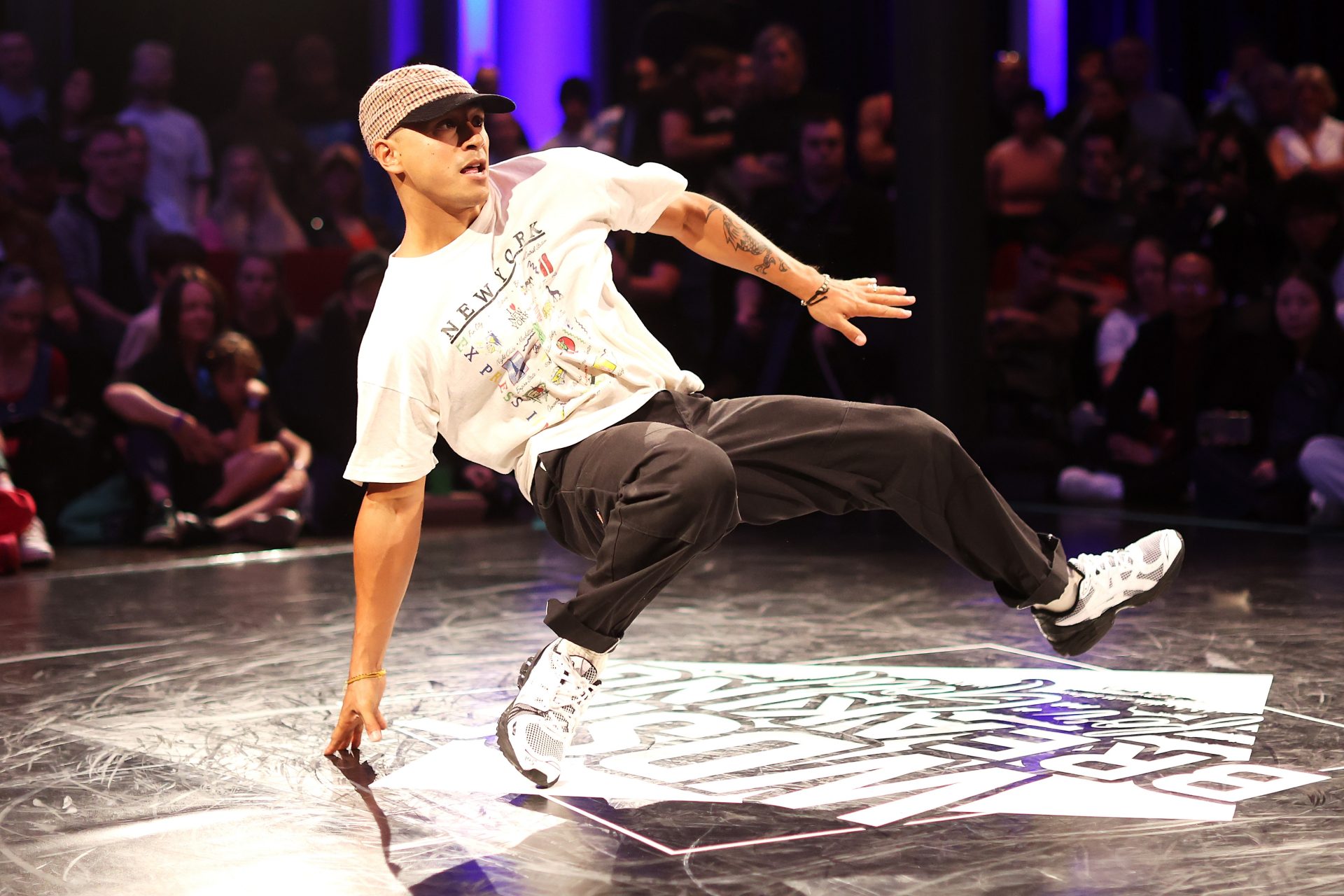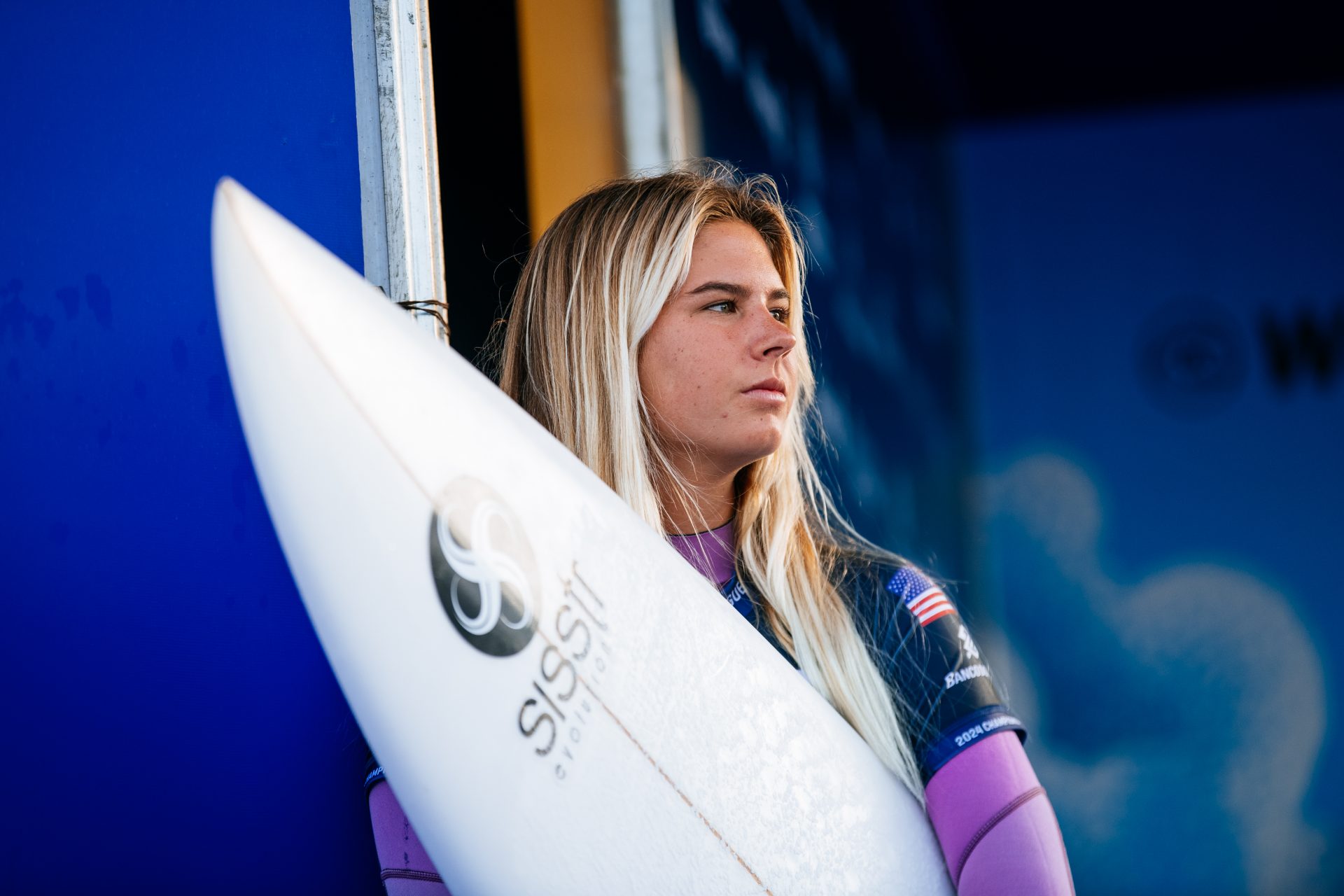Should breaking stay on the Olympics roster for LA 2028?
Infamous Australian breakdancer 'Raygun' has slammed the decision to remove Breaking from the Olympics for the 2028 Los Angeles Games.
The decision was made thanks to 'Raygun's' performance that went viral for all the wrong reasons at the Paris Games.
According to The Sun, she said: "It was disappointing it was decided that it wouldn't be in LA, particularly before we even had a chance to show it."
Want to see more like this? Follow us here for daily sports news, profiles and analysis!
"What is an Olympic sport? What are the similarities between dressage and artistic swimming and the 100m sprint and the pentathlon?"
Phil Wizard of Canada took home the inaugural gold medal for breakdancing at the Olympics, which made its debut in Paris in 2024. He told the Olympics website, "It went by so fast, but it feels incredible. This is history in the making, and I honestly never thought I would be here."
Ami Yuasa from Japan went down as the first gold medal winner in girls' Olympic breaking. She told AP News, "Breaking is my expression. It's an expression, an art, but I want to say that breaking could also be part of sports."
While the gold medal winners were a cut above the competition during the Olympics' final weekend, many agree that breakdancing shouldn't have even been at the Olympics at all.
Australian squash legend Michelle Martin didn't think much of breakdancing when it was announced as an Olympic sport. She told the Daily Mail that the Olympics had become a "mockery" after this decision.
A piece in on The Diamondback's website declines the notion that breakdancing should be in the Olympics. "Dance is not a sport," they wrote. "It's an art, no matter what the International Olympic Committee or So You Think You Can Dance judges try to tell you. There is no concrete way to measure one dancer against another."
In an interview with Wired before the Olympics, Wizard also appeared to support the notion that it's not a sport. "I saw I've always seen it as an art and culture first. I've never seen it as a sport. Most of us have never seen it as a sport."
Since this will be new for most people tuning, we'll take a closer look at the most important details to know heading into "breaking's" first run at the Olympics.
According to the Olympics' official website, breakdancing had to pass an important test before being tabbed as a Summer Olympic sport. It was selected as a sport in the Summer Youth Olympic Games in Argentina in 2018, and it was deemed to be a rousing success, which is why it was advanced to the big time in 2024.
Want to see more like this? Follow us here for daily sports news, profiles and analysis!
NBC News wrote that the IOC (International Olympic Committee) has introduced breaking into the fold in order to attract a younger audience to the Games. During its pilot run in Argentina, it was reported that breaking surpassed 1 million viewers.
Forbes announced in late June that the worldwide breakdancing field will consist of 20 competitors, 10 male and 10 female. This led to some difficult decisions for nations like the United States and Japan. "Riko" from Japan and "Gravity" from the US were left off because of the quota being met.
In addition to the United States and Japan, breakdancers from the Netherlands, South Korea, China, Kazakhstan, Ukraine, France, Chinese Taipei, Italy and Portugal were all part of the historic field.
B-Boys and B-Girls, as they are known, faced off in one-on-one dance competitions in a best of three format against an opponent from their gender. According to Forbes, a panel of nine judges scored the dancers using Level A of the World DanceSport Federation Breaking Judging System.
The rubric judges used grades five main components of the performance: technique, vocabulary (range of movements), execution, musicality (using movements that correspond to the music in a timely fashion), and originality.
The anticipation and excitement leading up to breaking introduction as an Olympic sport culminated over a two-day stretch on August 9 and 10.
The events were held at La Concorde Urban Park.
Want to see more like this? Follow us here for daily sports news, profiles and analysis!
The breakers themselves didn't choose their own songs. According to The Conversation's website, it's the DJ and MC who selected a tune, and the breakers had to adapt and adjust their dancing to the chosen song.
"I hope people understand the depth of breaking, because breaking has a lot of depth. You see a lot of different personalities and these personalities reflect in the way they dress, in the way we move," B-Boy Menno from the Netherlands told the Olympics' official website. "You can just see different minds on the floor combined with great athleticism."
"This is a chance for us to grow and educate people on breaking," Jeffrey Louis, known as B-Boy Jeffro from the US, told NBC News.
Antilai Sandrini of Italy has had a childhood dream of becoming the best breaker she could be. She told Red Bull's website, "The first day I tried the courses, I found B-Boy Laced and really fell in love with him as a teacher. From then, I knew I wanted to learn from him."
According to Forbes, breaking originated in the 1970s, and competitions have been in vogue since the 1990s.
AP News touched on the notion that longtime fans of breakdancing were conflicted about its inclusion in the Olympics. There's a feeling of fulfillment that the rhythmic dance is finally reaching the masses, but a concern that placing breaking in a box with judges and rules might pre-empt the creative spirit that makes it special in the first place.
Want to see more like this? Follow us here for daily sports news, profiles and analysis!
More for you
Top Stories



